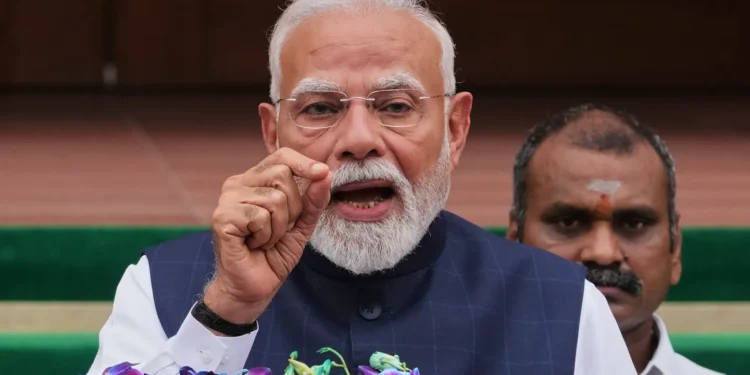Lagatar24 Desk
New Delhi: A day after US President Donald Trump announced an additional 25% tariff on Indian exports—raising the total to 50%—Prime Minister Narendra Modi issued a strong message, asserting that India would never compromise on the interests of its farmers, fishermen, or livestock holders. Speaking at the MS Swaminathan Centenary International Conference in Delhi, PM Modi said he is ready to pay a “personal price” for standing firm.
Modi Prioritizes Agricultural Sector Despite Economic Pressure
PM Modi made it clear that safeguarding the agricultural sector is a non-negotiable priority for his government. “I know I will have to pay a huge price for this personally, but I am ready. India is ready,” he declared. The remarks came minutes after Trump’s tariffs officially came into effect. Modi also paid tribute to the Green Revolution pioneer MS Swaminathan and emphasized the next goal for India’s agricultural scientists: ensuring nutritional security for all citizens.
India Condemns Tariffs and Stresses Energy Security
The Ministry of External Affairs responded sharply to the US move, calling the tariffs “unfair, unjustified, and unreasonable.” It stated that India’s oil imports from Russia are based on market needs and the energy security of 1.4 billion people. “India will take all actions necessary to protect its national interests,” the MEA added, asserting that other nations are making similar energy decisions without penalty.
Tariffs Escalate Tensions After Operation Sindoor
Tensions between India and the US have intensified since Operation Sindoor, India’s retaliatory military strike after the Pahalgam terror attack that killed 26 civilians. Trump claimed he had brokered a ceasefire between India and Pakistan—a claim dismissed by the Indian government. Modi clarified in Parliament that “no leader in the world asked us to stop Operation Sindoor,” insisting it was a non-escalatory action.
Trade Deal Talks on Hold Amid US Demands
Trump’s tariff escalation also reflects a broader breakdown in trade negotiations. The US has been pushing India to open up its agricultural market further—something New Delhi has resisted to shield domestic farmers. With talks paused, the tariff hikes signal Washington’s growing frustration, but also highlight India’s firm stance on protecting its rural economy.







